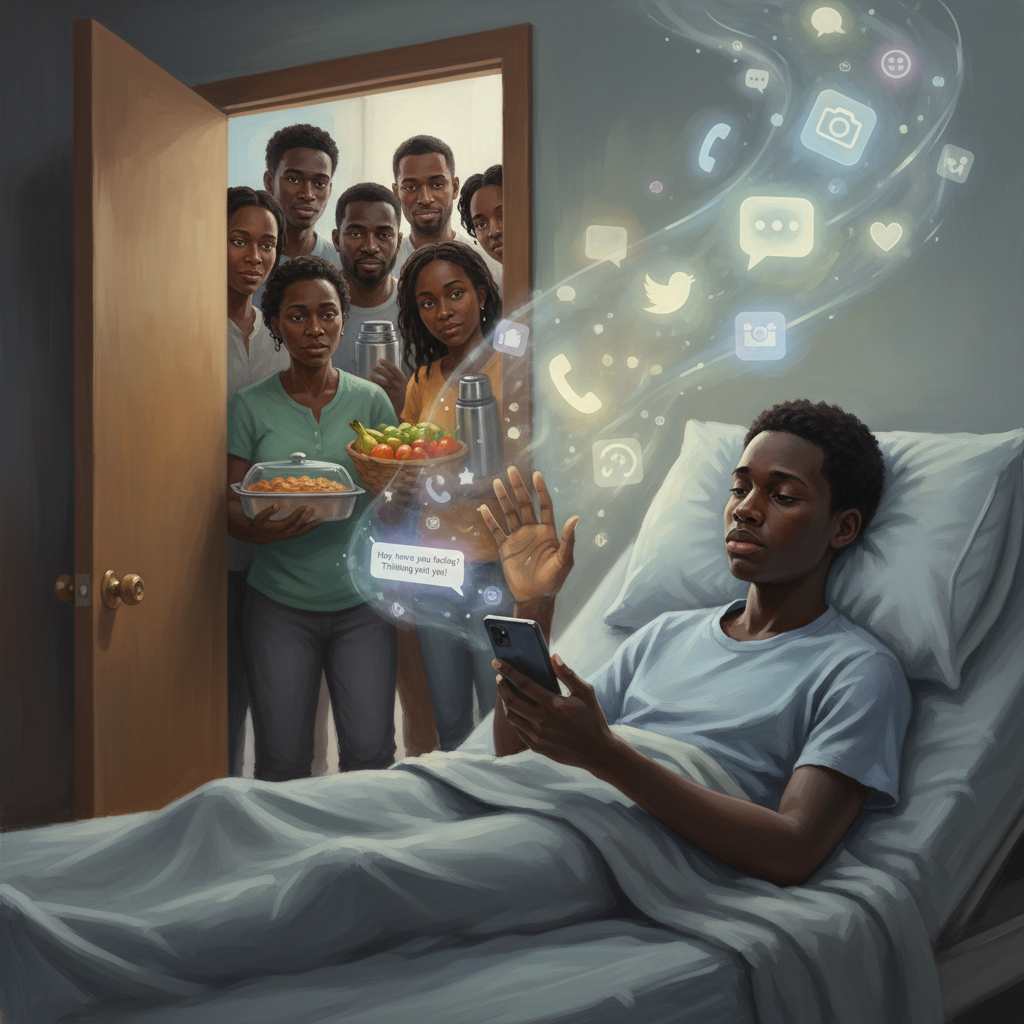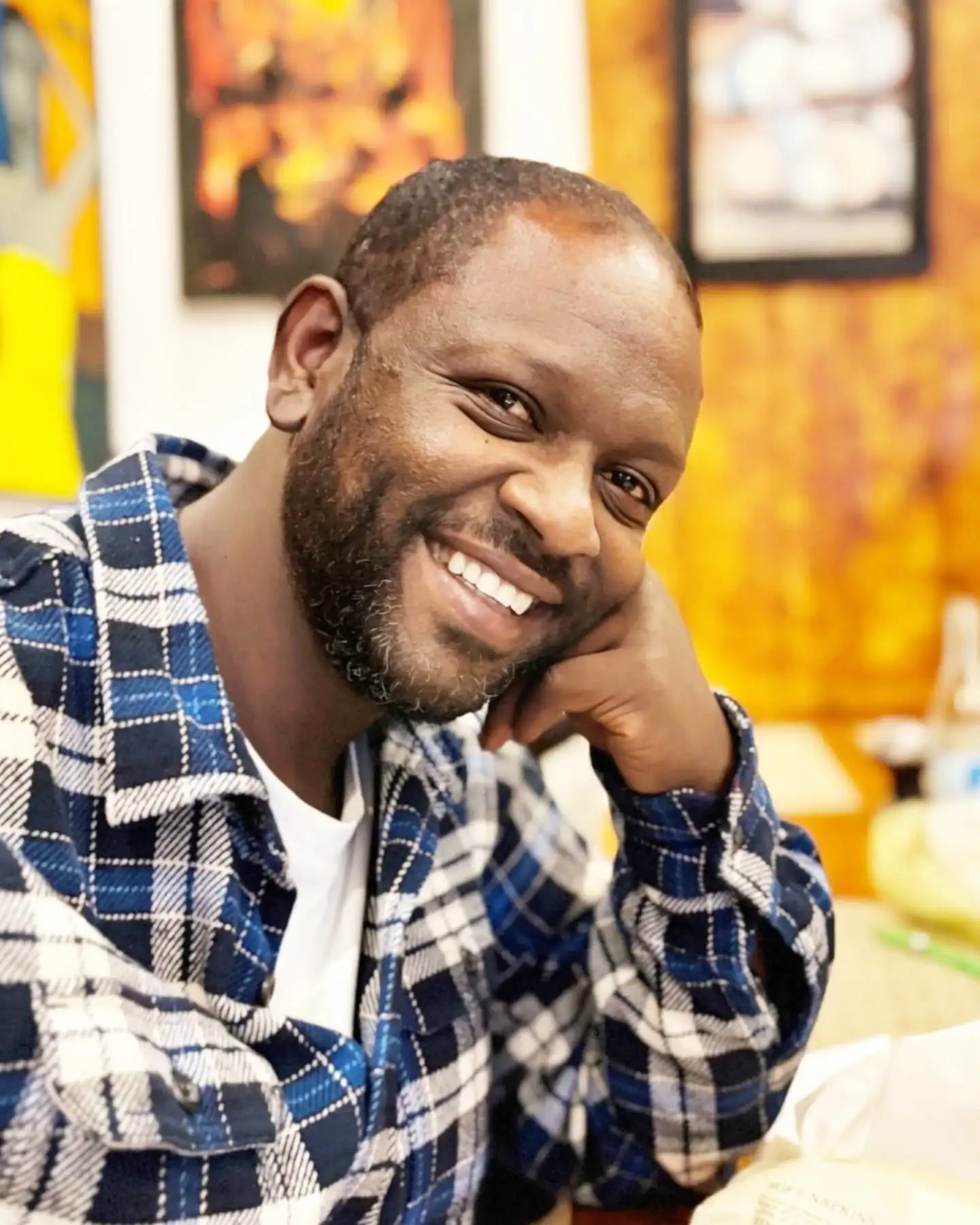By: Staff Contributor
When illness strikes, a person's world shrinks. The bustling rhythm of daily life gives way to the quiet, often mundane, struggle of recovery. In this vulnerable state, the outpouring of care from friends and family is a comfort, a lifeline. The text messages and social media posts, brimming with well wishes, are a digital hug. The calls and visits, however, while coming from the purest intentions, can sometimes become an unintentional burden, a silent obstacle to the very rest they are meant to support.
It's a strange paradox, isn't it? On one hand, you feel a deep gratitude for the love and concern. It’s a powerful reminder that you're not alone in your struggle. Each ring of the phone or knock on the door is a testament to the relationships you've built, a reassurance that you are valued. This feeling is genuine and vital to emotional well-being. Knowing that people care enough to reach out can fill you with a warmth that no medicine can replicate. It’s the human connection that makes the difference between simply recovering and truly healing.
Yet, there's another side to this coin. The "I'm just checking in" phone call, while brief, can interrupt a fleeting moment of peace or, worse, a much-needed nap. For someone battling a fever or dealing with post-operative pain, every ounce of energy is precious, and the act of answering a call requires a conscious effort they may not have. It's not just the physical act of speaking, but the mental gymnastics of trying to sound strong, to not worry the person on the other end. You're trying to prove you're “okay,” even when you’re not. You're performing for their comfort, sacrificing your own in the process.
This is especially true when it comes to retelling your story. Every call and every visit bring a fresh round of questions: "How did it happen?" "What did the doctor say?" "Are you eating?" Each retelling is an emotional re-enactment, a reliving of the pain and the fear. You become a living, breathing press conference, expected to give an update on your condition to a new reporter every hour. It's an exhausting loop. The narrative of your illness, once a personal and private struggle, becomes a public script you’re forced to recite over and over. This constant re-engagement with the traumatic or painful parts of your experience can interfere directly with the quiet, internal work of healing.
And then there are the visitors. The desire to see a loved one in person is a beautiful act of love, but the timing is everything. The designated "visiting hours" in hospitals exist for a reason—to allow for patient rest, medical procedures, and personal time. At home, this boundary is often nonexistent. A well-meaning friend who drops by unannounced can throw a wrench into a carefully planned day of rest. Suddenly, you have to find the energy to sit up, to make small talk, to offer them a drink. The very presence of another person, no matter how cherished, demands a level of social energy that a sick person simply might not have. You end up feeling guilty for not being a good host or for wanting them to leave, which adds another layer of emotional exhaustion.
It's a two-way street, of course. Sometimes, the patient themselves might not fully understand the need for rest or might truly appreciate the visits, especially from family members. This is particularly true in cultures where communal care is a foundational value. In a culture like ours in Ethiopia, for instance, a steady stream of visitors isn't just a kind gesture; it's an expected part of the recovery process. The presence of family and friends is seen as a crucial component of healing itself. To turn away a visitor, especially an elder, can feel disrespectful, even if your body is screaming for rest. This can create an internal conflict for the patient, who appreciates the love but is simultaneously exhausted by the social obligation. And the family of the sick person feels it, too. When people don't visit, it can be wrongly interpreted as a sign that nobody cares enough to show up, a painful slight that can add to the stress of an already difficult time. The well-meaning choice to give a sick person space might be misinterpreted as a lack of care, creating a misunderstanding that is rarely spoken about but deeply felt by everyone involved.
Ultimately, the best way to show you care might be to give the sick person space. It's a selfless act, one that says, "I love you enough to let you rest." A short text message that doesn't demand a reply—"Thinking of you and hoping you get some rest"—is often more valuable than a phone call. Dropping off a meal on the doorstep is more helpful than sitting at the bedside. The greatest support we can offer is to respect the patient's need for solitude and quiet, understanding that true care isn't about our need to check in, but their need to heal. It’s about prioritizing their recovery over our own desire for reassurance. In doing so, we turn our good intentions into a powerful and much-needed gift: the gift of peace.




